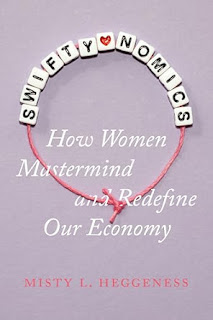
Her entry begins:
I’m so happy to answer this question; I love talking up other authors!About The Cheerleader, from the publisher:
First on my list is Saltwater by Katy Hays. I’m half-Italian and love everything Italian, so when I read the book blurb I was sold. It’s a sultry, seductive mystery set on the cliffs of Capri involving three key things: a valuable necklace that’s been passed down for generations, dishy family drama, and a decades’ old crime. Think Succession on a stunning Mediterranean island!
Next on my TBR list is...[read on]
Everyone wants to be a Dallas Lonestars Cheerleader, but fame can have a deadly price…Visit Marina Evans's website.
The Dallas Lonestars Cheerleaders are untouchable. They are the epitome of glitz and glamour, reeking of hairspray and perfection. But everything changeswhen America’s Angel and cheerleading captain Jentry Rae Randall is found murdered in the squad’s locker room.
Filmmaker Nikki Keegan has the opportunity of a lifetime. Brought in to document the Lonestars’ potential comeback after four disastrous seasons, Nikki is now perfectly placed to investigate the murder of the team’s iconic frontwoman.
Nikki turns to cheerleader Shaunette Simmons, the deceased’s best friend, for help. As Nikki becomes closer to Shaunette, the more she suspects that Shaunette is hiding something.
But when Shaunette is run off the road and left to die, it’s clear that nobody on this cheer squad is safe. Because some people would kill to be a Dallas Lonestars Cheerleader…
Marina Evans, a former NFL cheerleader herself, takes readers “behind the gloss” of this iconic American subculture in this high octane debut that is filled with twists, turns, and high kicks. Weaving between sisterhood and ambition, survival and scandal, The Cheerleader will keep you riveted until the final page.
My Book, The Movie: The Cheerleader.
Q&A with Marina Evans.
Writers Read: Marina Evans.
--Marshal Zeringue

.jpg)





.jpg)





.jpg)























